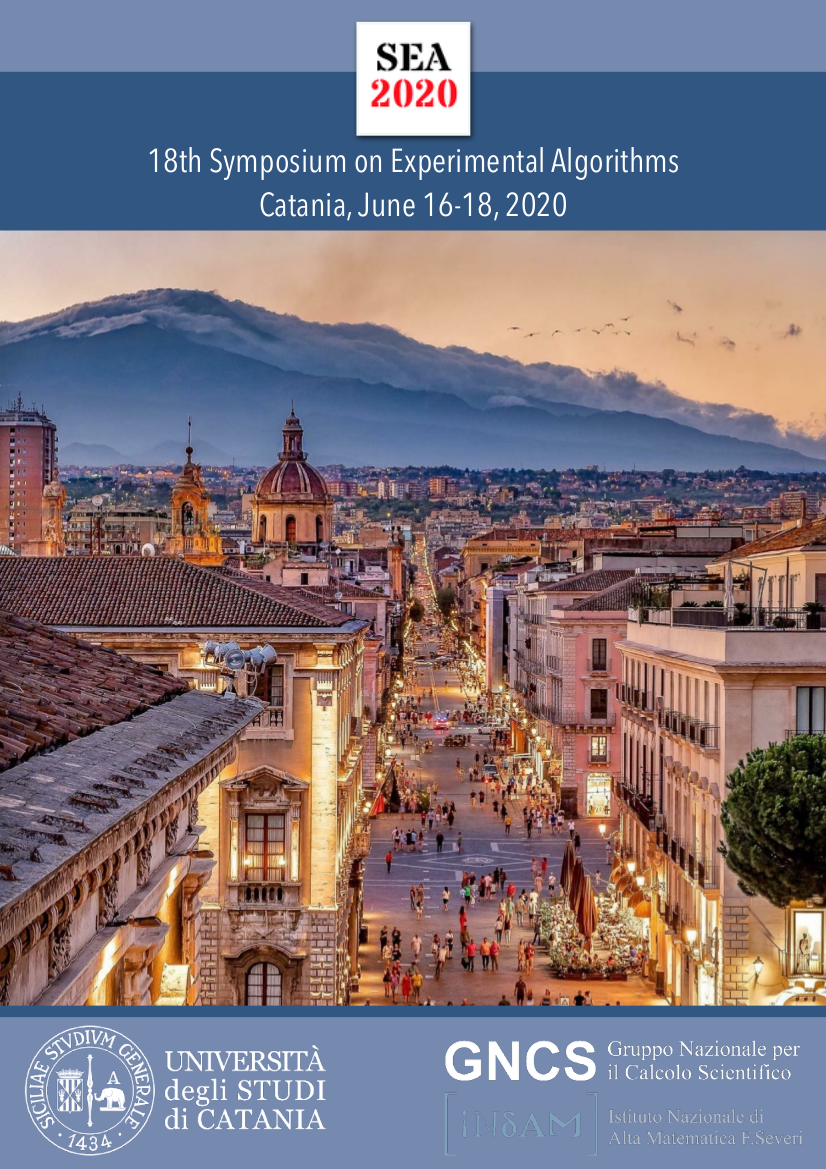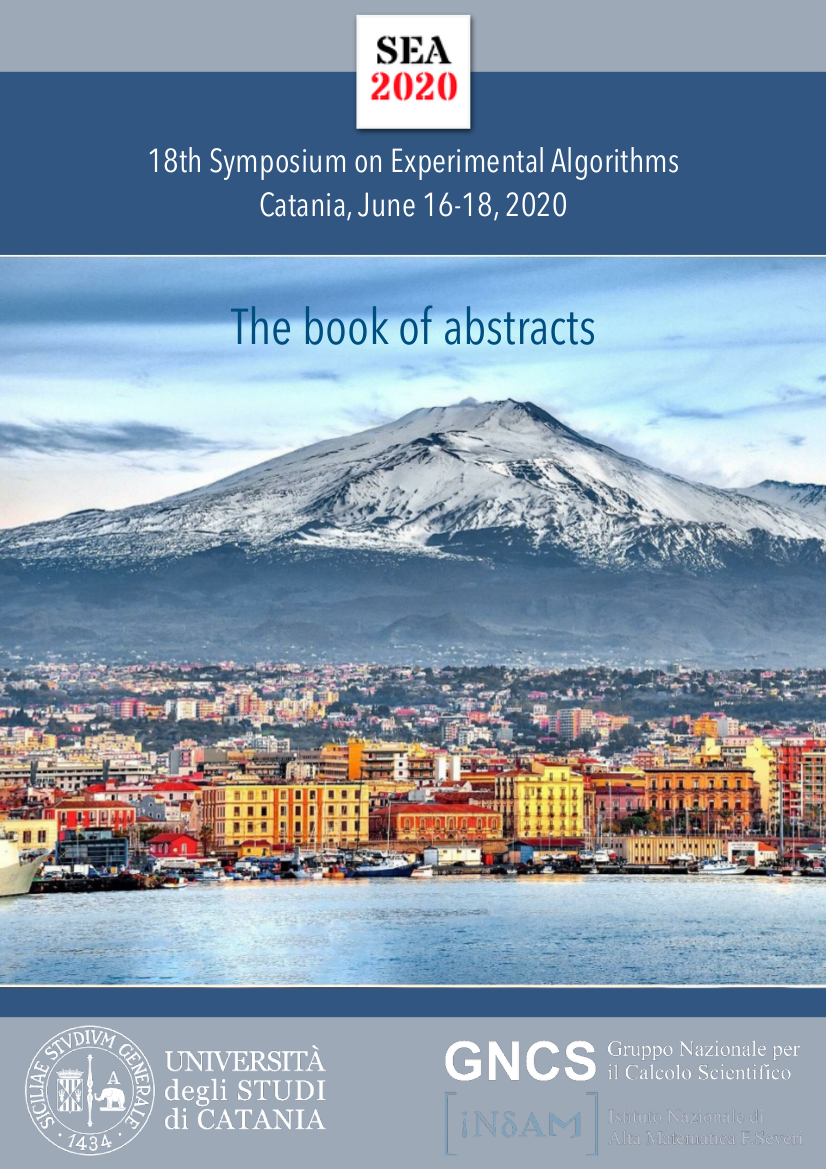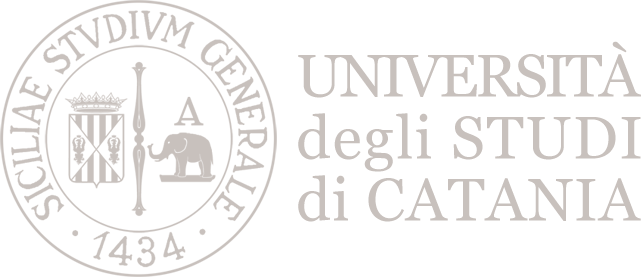 18th Symposium on Experimental Algorithms
18th Symposium on Experimental Algorithms
Welcome to the website of the 18th International Symposium on Experimental Algorithms (SEA 2020) that will be held in Catania (Italy) from the 16th to the 18th of June 2020.
SEA (International Symposium on Experimental Algorithms), previously known as Workshop on Experimental Algorithms (WEA), is an international forum for researchers in the area of the design, analysis, and experimental evaluation and engineering of algorithms, as well as in various aspects of computational optimization and its applications.
The Conference will be held at the Benedictine Monastery of “San Nicolò”, a unique place that tells us about the human and historic events of the city on the slope at the foot of Etna, from the ancient times until today.
The proceedings of SEA 2020 will be published in the Leibniz International Proceedings in Informatics (LIPIcs) open-access series. A special issue of selected papers will be published in the ACM Journal of Experimental Algorithmics.
March 2020: the situation surrounding COVID19 outbreak has evolved rapidly and is endangering the health and safety of everyone, which are for us among the highest priorities. Thus, based on the health situation in Italy and around the world, SEA 2020 conference leadership has decided that the most prudent measure is to deliver the conference online to all registered attendees, rather than by a physical meeting.
Thus, we will implement the meeting by an online platform that will provide our attendees around the world a new conference experience.
We plan to support audio and video presentations that should be linked to papers.
Specifically SEA 2020 will be held online using the Microsoft Teams platform.
SEA 2020 organizers will be updating the web page and send via email plans for remote participation, as we develop them.
About Catania
Conference Venue
Registration
Instructions for Attending
Conference Program
Abstract: January 24, 2020
Submission: January 31, 2020
Notification: March 20, 2020
Camera-ready: April 10, 2020
Registration: June 13, 2020
Conference: June 16-18, 2020
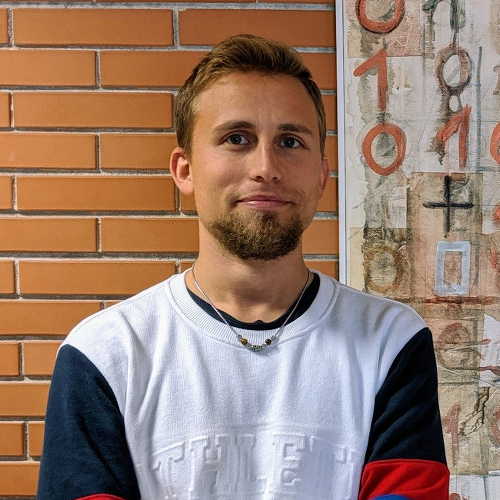 He earned his PhD in Computer science from the university of Udine in 2017.
After that, he spent some time as a postdoc researcher at the technical university of Copenhagen (DTU) and at the university of Pisa.
Since February 2020, he is an assistant professor at the LUISS university in Rome.
Nicola co-authored over 30 articles in the field of compressed data structures, including publications in important venues such as JACM, SODA and STOC, and is the author of the first C++ library of dynamic compressed data structures. He served on the program committees of CPM 2018, CPM 2020, and co-chaired the 13th Workshop on Compression, Text and Algorithms (WCTA 2018). In 2018, the Italian chapter of EATCS awarded him the "best Italian young researcher in Theoretical Computer Science" award for his contributions to theoretical computer science.
He earned his PhD in Computer science from the university of Udine in 2017.
After that, he spent some time as a postdoc researcher at the technical university of Copenhagen (DTU) and at the university of Pisa.
Since February 2020, he is an assistant professor at the LUISS university in Rome.
Nicola co-authored over 30 articles in the field of compressed data structures, including publications in important venues such as JACM, SODA and STOC, and is the author of the first C++ library of dynamic compressed data structures. He served on the program committees of CPM 2018, CPM 2020, and co-chaired the 13th Workshop on Compression, Text and Algorithms (WCTA 2018). In 2018, the Italian chapter of EATCS awarded him the "best Italian young researcher in Theoretical Computer Science" award for his contributions to theoretical computer science.
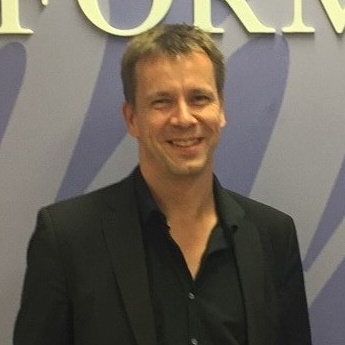 Stefan Edelkamp is professor at King's College London, leading the planning group. Before that he was working at the Institute for Artificial Intelligence, Faculty of Computer Science and Mathematics of the University of Bremen, and at the University of Applied Science in Darmstadt. He earned his Ph.D. from Freiburg University and led a junior research group at Technical University of Dortmund. His scientific interest is Algorithmic Intelligence, and includes areas such as Heuristic Search, Action Planning, Game Playing, Machine Learning, Motion Planning, Multi-Agent Simulation, Model Checking, External-Memory Algorithms, Parallel and Distributed Computing, Algorithm Engineering, Computational Biology, Decision Diagrams, Priority Queues, Navigation Systems, Network Security, and Intrusion Detection. Stefan Edelkamp has organized international conferences, workshops, and seminars and won several performance awards at international planning competitions. Together with Stefan Schroedl he is author of the text book Heuristic Search - Theory and Applications published by Morgan Kaufmann / Elsevier Science.
Stefan Edelkamp is professor at King's College London, leading the planning group. Before that he was working at the Institute for Artificial Intelligence, Faculty of Computer Science and Mathematics of the University of Bremen, and at the University of Applied Science in Darmstadt. He earned his Ph.D. from Freiburg University and led a junior research group at Technical University of Dortmund. His scientific interest is Algorithmic Intelligence, and includes areas such as Heuristic Search, Action Planning, Game Playing, Machine Learning, Motion Planning, Multi-Agent Simulation, Model Checking, External-Memory Algorithms, Parallel and Distributed Computing, Algorithm Engineering, Computational Biology, Decision Diagrams, Priority Queues, Navigation Systems, Network Security, and Intrusion Detection. Stefan Edelkamp has organized international conferences, workshops, and seminars and won several performance awards at international planning competitions. Together with Stefan Schroedl he is author of the text book Heuristic Search - Theory and Applications published by Morgan Kaufmann / Elsevier Science.
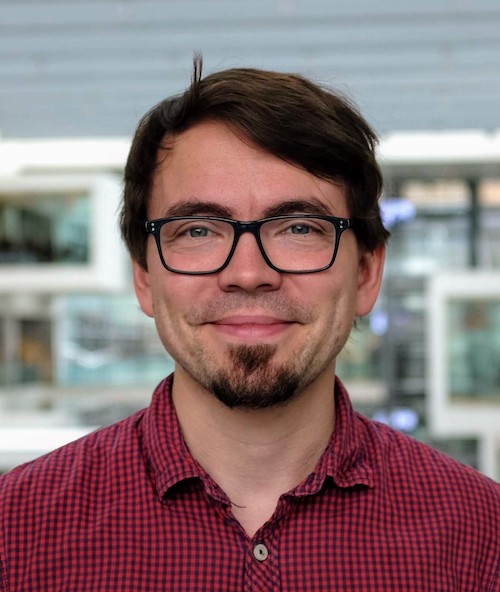 Martin Aumüller is assistant professor in the Algorithms Group at IT University of Copenhagen. He is interested in the design and analysis of randomized algorithms. Before joining ITU as assistant professor, he was a postdoctoral researcher at ITU working in the ERC-funded project on Scalable Similarity Search of Rasmus Pagh. He obtained his PhD in 2015 from Technische Universität Ilmenau under the supervision of Martin Dietzfelbinger.
Martin Aumüller is assistant professor in the Algorithms Group at IT University of Copenhagen. He is interested in the design and analysis of randomized algorithms. Before joining ITU as assistant professor, he was a postdoctoral researcher at ITU working in the ERC-funded project on Scalable Similarity Search of Rasmus Pagh. He obtained his PhD in 2015 from Technische Universität Ilmenau under the supervision of Martin Dietzfelbinger.
